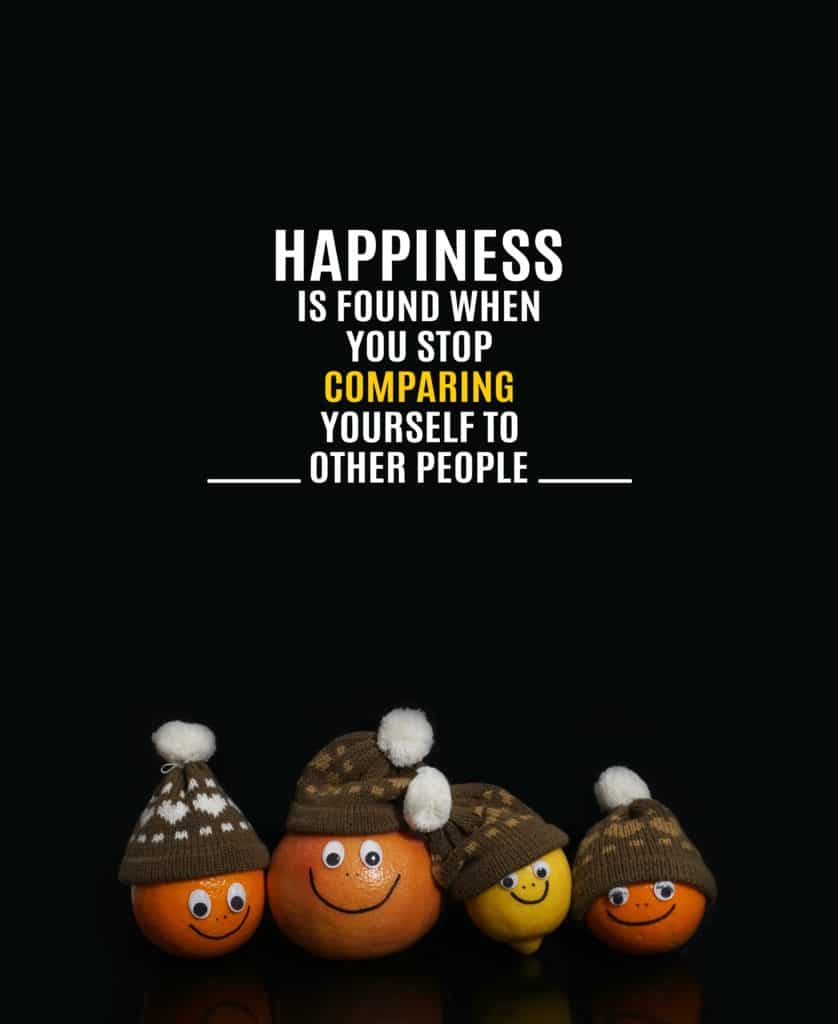7 Ways to Improve Your Self-Confidence
Self-confidence is a feeling of believing in your capabilities, qualities, vision, and judgment. It is like food for the mind, body, psychological wellness, and overall health. You are not confident by birth or by instinct. Social and emotional factors play an important role in determining your confidence level. Also, the feeling is not constant. Instead, it is highly dynamic.

Your trust in yourself varies during different phases of life. There are situations when your self-confidence is either at its peak or dropped down to the lowest self-esteem. If your self-confidence is under the cloud, you can give it a boost by slightly changing the ways you look at yourself. Below are a few suggestions for taking your self-confidence to high spirits.
Table of Contents
What is Self-Confidence and What Depletes it?
Self-Confidence is when you feel happy with who you are and you do not look to others for your worth. Sometimes people fake this or do certain things to receive that confidence from others but it has to come from within.
You feel confident when you think you are capable of controlling your life situations. Generally, people suffer from low self-confidence due to;
- Physical appearance
- Unpleasant past events
- Difficulty in relationships
- Workplace difficulties
- Lagging in education
- Social anxiety
How to Build Self-Confidence
Being confident enough in yourself is an amazing feeling. It would not be wrong to assert that highly confident people survive various life situations with much ease as compared to those with low self-esteem. Self-confidence is a major issue when individuals go to counseling is that they do certain things or do not pursue what they want in life because of a lack of self-confidence.
Better Productivity and Performance: Instead of wasting time and energy worrying too much about the potential failures, they focus on their tasks and give better output.
Healthy Relationships: when you feel good about yourself, you are more able to maintain healthy and successful relationships. If things do not go well, you have the strength to cope with the situation without much emotional damage.
Ready for New Experiences: When you have a better self-image of yourself, you do not fear trying new things.
Resilience: Self-belief enhances your ability to bounce back from any life adversity.
Self-confidence is not a uniform entity. You might feel highly confident in one area and feel less confident in others. There is no perfect one-word method or methodology for gaining self-confidence. But, there are certain strategies you can adopt to work on self-confidence.
1. Stay Away From Unhealthy Comparisons
Mostly your confidence level drops when you have a feeling that other people are far better than you.

Their looks, lifestyle, profession, and income might throw you into a pool of despair. Over-indulgence in social media is a big factor. There is no harm in making health comparisons to keep you motivated unless it starts debilitating your self-image. You appreciate others for their achievements, envy them, and later the feeling of worthlessness overwhelms you.
Drawing too many comparisons hinders your confidence building. Reinforce the fact that everyone has their life challenges. Life is a blessing, not a competition. Think of your strengths and blessings which others might find missing in their life.
Tip. Learn what you can and can’t handle and stay away from what doesn’t serve you.
2. Find Good Friends
The people around you greatly influence your thoughts about yourself. Keep noticing how they make you feel.
Moral support is everything for a person struggling with low self-confidence. Surround yourself with people with a positive, encouraging, and welcoming aura. It will provide a healthy environment for boosting your motivation and dealing with your weaknesses with an open mind.
On the other hand, judgmental friends bring you down. If a particular person makes you feel bad about yourself, it is a red flag that this person is a threat to your self-confidence. It is not possible to cut off judgmental people from your life completely but what you can do is reduce contact with them. If you can’t avoid them, keep your conversations neutral and try to create a less competitive environment, at least from your side.
3. Positive Affirmations
Positive affirmations are a great way to give your mind a positive bank to pull from.
A positive attitude is the first step on the road to self-confidence. What is a positive attitude? A positive attitude does not reveal itself in a single action or a set of particular actions. It is embedded in everything you do. For instance, your level of gratefulness reveals your intensity of positivity. When you feel envious or insecure about someone’s achievements, count your strengths and blessings. Celebrate your achievements, giving yourself credit for even the smallest accomplishments.
A positive mind performs better and responds better. This is how positivity separates a confident person from another person with low self-esteem.
Signs of a Healthy Self-Confidence level
- Not feels threatened by other people’s success
- Are open-minded
- Willing to take risks
- Decisive
- Open to learning and growing
- Embrace mistakes
- Take responsibility for their actions
Signs of Low Self-Confidence
- Judgmental
- Jealous of others’ achievements
- Close-minded
- Unable to accept change
- Hide and negate flaws
- Indecisive
- Act like they know everything
- Find excuses
- Blame others
4. Listen to Your Body
It might sound strange but taking care of your body and understanding its needs is an important aspect of achieving self-confidence. The universal fact that a healthy mind comes from a healthy body holds truth. How can a person feel good about themselves with an ill body? The journey of improving self-confidence starts with a fit body. Here is why personal self-care is crucial. The following self-care practices are easy to implement and boost your self-confidence in the long run.
Healthy Eating: A healthy diet keeps you in high spirits physically, psychologically, and spiritually. How it impacts your confidence and self-esteem. A nutrient-rich diet keeps you healthier, stronger and energized. Consequently, you feel better about yourself.
Exercise: Physical activity helps you achieve your desired body shape to make you feel more confident about the way your body looks. Secondly, it maintains the flow of happy hormones in the body.
Sleep: Sleep disturbances give rise to a chain of emotional instabilities. Contrary to this, sound sleep helps to manage emotion ebb and flow and induces healthy traits of optimism and self-esteem.
Meditation: Sleep relaxes your body, while meditation relaxes your mind, body, and soul. It is an important component of a feel-good regime. Through practicing meditation, your mind flees from the repeatedly haunting thoughts. What impact does it have on self-confidence? Meditation is the beginning of the journey of self-awareness and acceptance. It emancipates your mind of discouraging self-talk and the non-stop unhealthy mental chatter that ruins your confidence.
5. Stop Being Hard on Yourself
Understand your purpose of living. You are not to please others, striving to get their appreciation and approval. Liberating yourself from the shackles of what people think of you is the beginning of the journey of self-acceptance. Treating yourself with kindness is the first step toward this journey. No individual is free of weaknesses, errors, and flaws. Like everyone, you are bound to make mistakes. Some mistakes are beyond your control. From others, you can learn a lesson and amend in the coming days.
Self-compassion leads to self-confidence. At times you go through a challenging situation, and you acknowledge that to err is human. Ponder on these things with empathy and self-compassion and free yourself from bearing the lifetime burden of low self-esteem.
Mindfulness-Based Stress Reduction Therapy is a way of being mindful of how you feel about a situation but not judging yourself for how you feel. Acknowledging that you have emotions about something but those thoughts and emotions “aren’t you” and don’t define you and they don’t have to control you either.
6. Positive Self Talk
Negative utterances have a devastating impact on your abilities. Your mind absorbs such talk and starts accepting that you are less than others in abilities, performance, and achievements. Underestimating your abilities prevents you from soaring high and dreaming big. Contrary to this, positive self-talk helps instill self-compassion, overcome fears and self-doubts, and you are ready to embark on new challenges.
Use optimistic phrases to nullify the influence of negative self-talk like:
Say “I can do it” or “I can try it” instead of saying, “it is too difficult for me; I cannot do it.”
Or replace “I can’t do anything right” with “I can do better next time.”
7. Face Your Fears
Avoiding fears makes them intense and worse. Facing your fears is to stop escaping or delaying things that are indispensable but threatening to you, like going for an interview or a date, or public speaking. Think of the possible worst that could happen. Once you dive in, you learn how to dance in the rain.
The above tips work most of the time. Sometimes these things do not prove effective and keep on interfering with the person’s daily life. This is an indication that low self-confidence might be due to any mental health issue, depression, or anxiety. If this is so, the person should consult a mental health professional. A therapist can apply various approaches to understand the problem and causes and recommend treatments accordingly.
- -How to Learn relaxation techniques you can do anywhere.
- -Identify anxiety in yourself and others.
- -Learn how to better react to situations and set a firm foundation for dealing with stressful situations.
- Use Natural Supplements, Dietary, and Lifestyle changes to help you feel less anxious sooner.
- I am a Counselor in Training, so I share what I learn through my education and experience and the price will go up shortly--- However! You will get all of the free updates I make to the course at no additional charge to you! As I learn through research, my education, and personal experimentation of new supplement regimens I will share them with you!
8. Set Boundaries
Setting boundaries can be a major part of how you face your fears and gain respect. Make sure you are doing this when you are calm and collective as best as you can. If it is someone you care about, explain to them how you feel but let them know you love them but you need “this” to feel respected and heard.
If this is something that is challenging for you to do, try doing some psychodynamic therapy with a psychotherapist to work out why you feel like you can’t set those boundaries.
Conclusion
Improving your self-confidence positively influences your life. It makes you feel better, think better, and perform better. Low confidence makes you miserable and vulnerable to stress. Every person struggles to get through some confidence crises at some stage of life. Certain minor things can help to make you feel more confident. Focus more on making yourself happy and healthy instead of getting approval from others.
Originally posted 2022-05-05 18:30:17.
Megan Santiago
Latest posts by Megan Santiago (see all)
- How to Find a Trauma Therapist in Tampa - September 30, 2024
- Get Your Child to Listen: A Clear-Cut Way To Feel Heard - March 10, 2024
- Help With Bills – How to Get Financial Assistance - March 10, 2024

